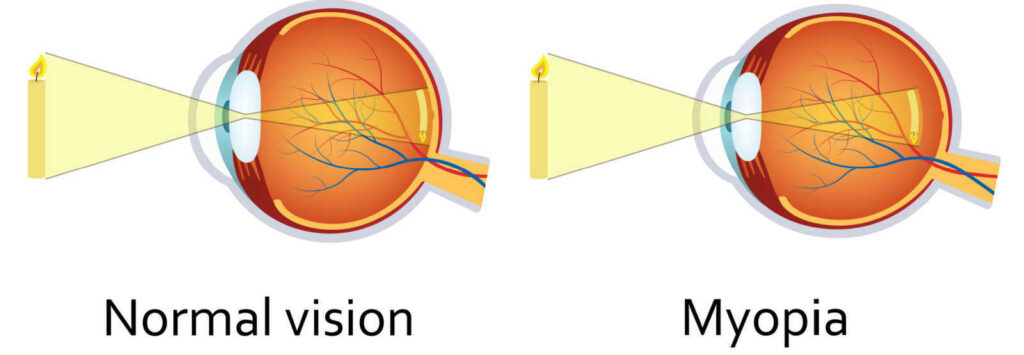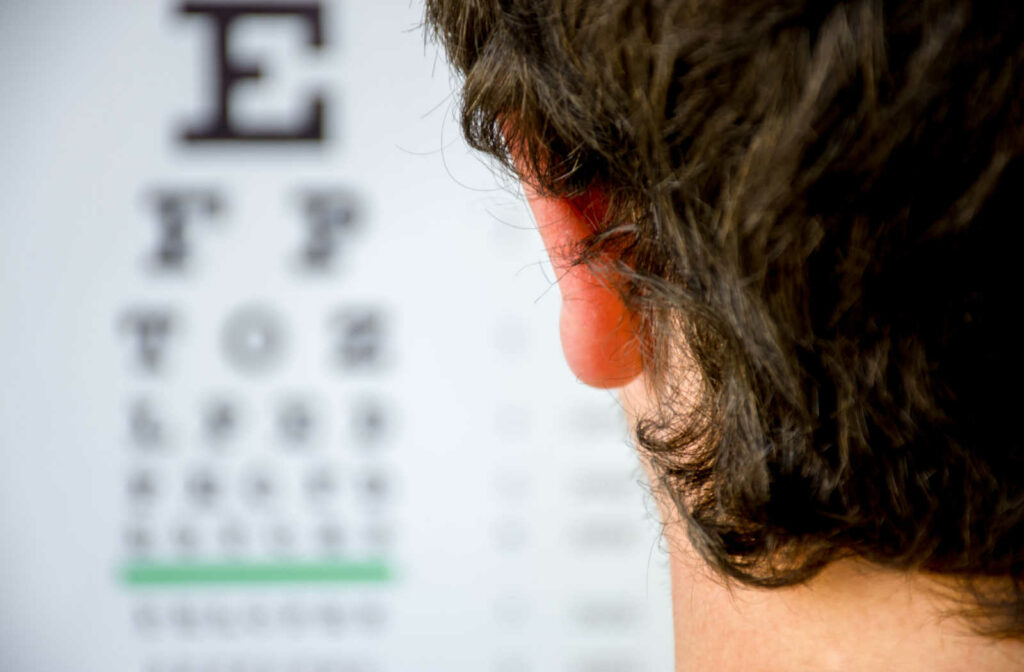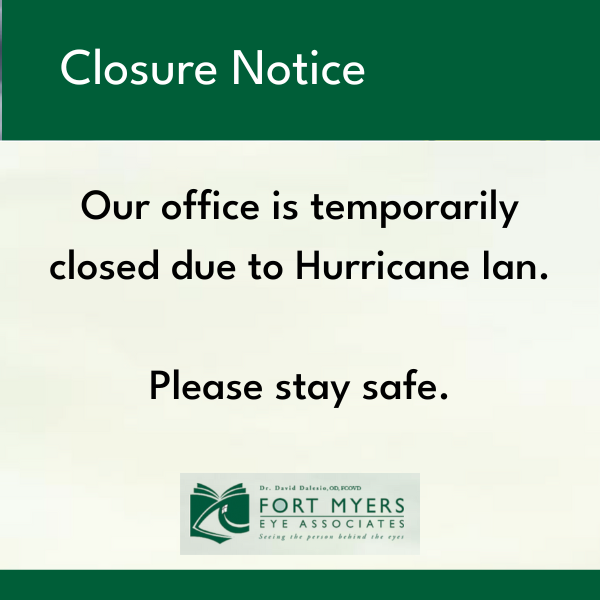Many vision conditions are dynamic, meaning they can progress and develop over time. Our eyes are constantly changing, especially when we’re young.
During childhood, many vision conditions start developing and can continue to progress into adulthood. A lot of kids are unaware of vision problems because they don’t know how their vision could look. It’s important to take your child to regular eye exams to help them see clearly and comfortably.
Myopia is an increasingly common vision condition that affects almost 30% of the US population. There are new treatments that are designed to slow the progression of myopia in children, which can protect their vision for years to come.
What Is Myopia?
Myopia (nearsightedness or shortsightedness) is a vision condition that causes things at a distance to appear blurry. This means that the farther away something or someone is, the less clearly they appear to a person with myopia.
Myopia results from an irregular eye shape; sometimes the cornea is too steeply curved, but more often myopia is caused by the eyeball growing too long from front to back. Light entering the eye should focus on the retina in the back of the eye. With the elongated eyeball of a person with myopia, light instead focuses too soon, and the image you see is blurry.

The vision problem is usually diagnosed between ages 6–14 and worsens with age. In most cases, vision stabilizes in a patient’s early 20s. Without intervention, myopia often worsens rapidly throughout childhood and the teen years. However, if myopia is diagnosed early enough, myopia management can be effective in slowing the progression of this condition.
Myopia is just one of the conditions your optometrist looks for during your child’s comprehensive eye exam. Children who are school age should get an eye exam once every year to ensure they can see clearly and to check for any signs of visual issues or diseases.
Symptoms & Causes
The signs and symptoms of myopia can include:
- Blurry vision when looking at distant things/people
- Needing to squint to see clearly
- Headaches & eye strain
- Difficulty driving
Your child may be unaware of a problem with their vision simply because they don’t know their vision is impaired in some way. Children with undiagnosed myopia may exhibit behaviors like:
- Excessive blinking
- Persistent squinting
- Rubbing eyes frequently
- Seems to be unaware of far-away things
- Needing to sit closer to TVs or whiteboards
Myopia tends to run in families, so if you or your partner has myopia, there’s a chance your child will develop myopia, too. Childhood and teen myopia is on the rise due to increased use of smartphones, computers, and related digital eye strain. Looking up close at objects for long periods of time can contribute to myopia.

Why Is Myopia Management Important?
Children with myopia can struggle to see things that are far away from them, like the classroom whiteboard or the television. And because myopia usually progresses over time, their vision can continue to worsen for years.
The eyeball growing too long too fast throughout childhood and teen years can put a person at risk of developing vision-threatening conditions later in life, such as glaucoma, cataracts, retinal detachment, and myopic macular degeneration. Myopia can even contribute to early onset glaucoma.
Since myopia causes the eyeball to grow too long, over time the thin layer of light-sensitive tissue (the retina) in the back of the eye is more stretched. The retina can then pull away (detach) or be prone to retinal tears in midlife and later life. Retinal detachment can lead to permanent vision loss without quick treatment, and people with moderate and high myopia are at a higher risk of experiencing retinal detachment due to their elongated eyeballs.
Myopia management is an innovative treatment that can slow the progression of myopia, especially in younger children. While myopia management therapies are not a cure for myopia, these therapies can slow down myopia’s progression and prevent a child from developing high myopia.
Children and teens undergoing myopia management almost always have less severe myopia by the time they are an adult. That is why myopia management is so crucial – it can prevent a person who would potentially have high myopia as an adult instead have low-to-moderate myopia. Of course, every parent would want to stabilize their child’s blurry vision and prevent it from getting much worse. Thankfully, there are treatments available that can significantly reduce myopia’s progression over the course of several years.
Glasses do not slow the progression of myopia. Even though glasses or regular contacts enable you to see better, they do not slow down eyeball length growth. Lasik surgery later in life does not shorten the eyeball or reduce the risks of vision-threatening eye diseases from the stretched retina of myopia patients. This is why myopia management treatments are the most effective treatments for protecting the vision health of children and teens.
Myopia management aims to protect your child’s vision and ocular health long-term. At Fort Myers Eye Associates, our experienced team of doctors can help your child find a myopia management treatment that works for them.
If your child has myopia, or you suspect they do, book an appointment with our team today.
Treatments for Myopia Management
Traditional single-vision eyeglasses or regular contact lenses can correct vision but don’t slow myopia progression. Some research indicates that single-vision lenses can increase the eye’s axial length, resulting in worsening symptoms. Myopia management includes methods that slow the rate of eye growth.
There are methods for treating myopia at any age, but myopia management is designed for children and teens. By controlling myopia progression in childhood, optometrists can help prevent the increased risks associated with high myopia. The sooner the treatment is started, preferably right at the first diagnosis of myopia, the more the myopia can be slowed down.
Orthokeratology
Orthokeratology (ortho-k) involves specially-designed rigid gas permeable (RGP) hard contact lenses. The patient wears the lenses at night and then removes the lenses in the morning, ideally resulting in clear vision for the whole day. Ortho-k can also slow myopia progression by 50% in 2 years, with potentially more significant effects when used longer.
The ortho-k lenses gently flatten the cornea, improving how light is reflected onto the retina. Children must wear ortho-k lenses consistently throughout nighttime sleeping hours to maintain vision correction.
These lenses are sometimes referred to as corneal reshaping lenses.
Soft Myopia Management Contact Lenses
They are specially-designed multifocal soft contact lenses that reduce the axial length (length of the eyeball), and they are FDA-approved.
These contact lenses are worn during the day and slow the progression of myopia more than any of the other options.
Medication (Eye Drops)
Eye doctors may prescribe low-dose atropine drops to slow myopia progression. The eye drops, used at bedtime, relax the eye’s focusing mechanisms and help slow eyeball length growth. The atropine treatment is most effective for children between the ages of 8 – 15.
Atropine drops can also be used in combination with either ortho-K or soft myopia management contact lenses.
Outdoor Time
Spending more time outdoors during childhood could decrease the risk of developing lifelong nearsightedness. However, UV also has the potential to harm your child’s eyes if they don’t wear proper protection. Your child should wear sunglasses that protect from UVA and UVB rays, which could harm their eyes. It is recommended that children spend at least an hour outdoors daily to reduce myopia progression. Being outdoors also helps children to look at things at a distance more frequently, which helps their distance vision.
Help Your Child Succeed
Managing myopia in childhood is the best way to protect their life-long vision. Slowing progression can decrease their risk of eye disease later in life and improve their visual comfort now.
Additionally, myopia management can help your child see clearly and comfortably while at school, playing sports, or spending time with you. Life’s so much better when you can see it properly!If your child’s prescription is getting stronger or you have concerns about their vision, talk to us about myopia management. Book an appointment today with Fort Myers Eye Associates.





